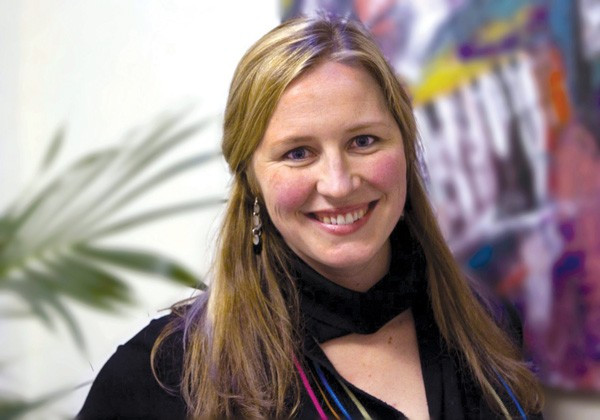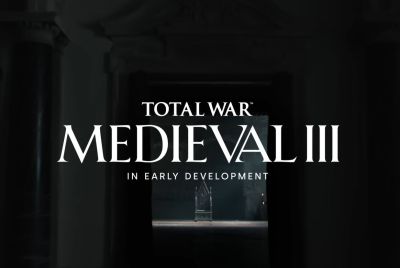Crowd-Funding the Future – How Indiegogo Wants to Disrupt the Economic Eco-System
Co-founder of the crowd-funding website Indiegogo, Danae Ringelmann, believes her model has the power to disrupt the global economic eco-system.

On 7 April this year, Landon Haley was born to proud parents Jessica and Sean. He is unique. He is the first child to be born thanks to the power of crowd-funding.
High-school sweethearts Jessica and Sean were told last year they had a one percent chance of conceiving a child naturally. They didn't know what to do. IVF was the only option, but the prohibitive cost was a huge barrier in their way. Sean thought about taking out a loan or putting the cost all on his credit card.
Then in June 2011, in what they saw as nothing but a last ditch effort, they posted their story on crowd-funding website Indiegogo. They had already tried another crowd-funding site, Kickstarter, but were refused on the basis that it didn't accept medical or health campaigns.
The Indiegogo campaign was a runaway success and surpassed the $5,000 campaign target easily, eventually reaching $8,050. and on 2 September, Jessica announced on the site that she was pregnant. Seven months later Landon arrived - the first crowd-funded baby.
Indiegogo is the world's largest crowd-funding site and has been around since 2008, and is active in almost 200 countries around the world. The UK is a major market for the site and as a result, Indiegogo will be setting up a subsidiary business here in the first half of 2013.
Currently only Us dollars are accepted on the site, but by the end of December funders will be able to support campaigns in sterling, euros and Canadian dollars. Adding to its global credentials, the service will also soon be available in French and German, as well as English, with 24-hour customer support in all three languages.
But this is only the beginning according to co-founder Danae Ringelmann, who confidently states: "I fundamentally believe that crowd-funding is becoming a permanent part of the whole finance eco-system."
Game-changing
Ringelmann uses terms like game-changing, open, meritocratic and revolutionary during our interview, and seems to truly believe that crowd-funding is the future and that Indiegogo's open Google-like approach is the only one which truly offers something different.
The rejection of the Haley's project by Kickstarter is endemic of a problem with the business model employed by Kickstarter and most other crowd-funding websites.
Ringelmann says that Indiegogo is "fundamentally different" from its competitors who "pick and choose which projects are deemed worthy of crowd-funding."
Ringelmann believes that Indiegogo's model of not turning anyone away is the only way that crowd-funding can genuinely change the way the finance system works. She believes that the models employed by other crowd-funding sites, simply makes them little more than record labels or venture capitalists.
In contrast, Indiegogo refuses no one. Simply long on, put in your project details, your campaign target and off you go. It means that on any given day, you will find projects as diverse as a campaign to build a floating cinema to a campaign to help a woman battle colon and liver cancer - and that's just in the UK.
Unleash
"By having an open platform you really unleash what's possible."
One of the most high-profile campaigns, aside from the Haleys, saw a 68-year-old school bus driver, Karen Klein, receive over $700,000 after a video was posted on the site showing her being verbally abused by the children she ferried to and from school.
However it is not with these types of projects that Ringelmann sees Indiegogo having its biggest impact. She believes it will give those seeking financing an alternative route than those typically open to someone looking to get a business off the ground.
The current system sees entrepreneurs head down one of two routes. The first is the traditional route of asking a bank for a loan, while the other is trying to convince venture capitalists that your idea is worth risking their cash on.
Getting a meeting with the venture capitalist might take weeks or months of work, and in the end he or she could simply turn around and say "no thanks" and you are back to square one. However, placing your project on a crowd-funding site means you get instant feedback.
Wisdom of the crowd
Ringelmann believes there is a "wisdom and power to the crowd" and that if your project receives little or no feedback then you might be better off returning to the drawing board.
Conversely, if your project receives a lot of interest and funding, then your options multiply. You can keep going with the crowd as your main source of funding or, if you need a lot of money, you can use the positive interest from the crowd to help you convince a venture capitalist or bank to invest in your project.
Crowd-funding has the potential to change the way the global financial system works. It has already produced one baby and if Ringelmann is to be believed this is only just the beginning.
© Copyright IBTimes 2025. All rights reserved.






















